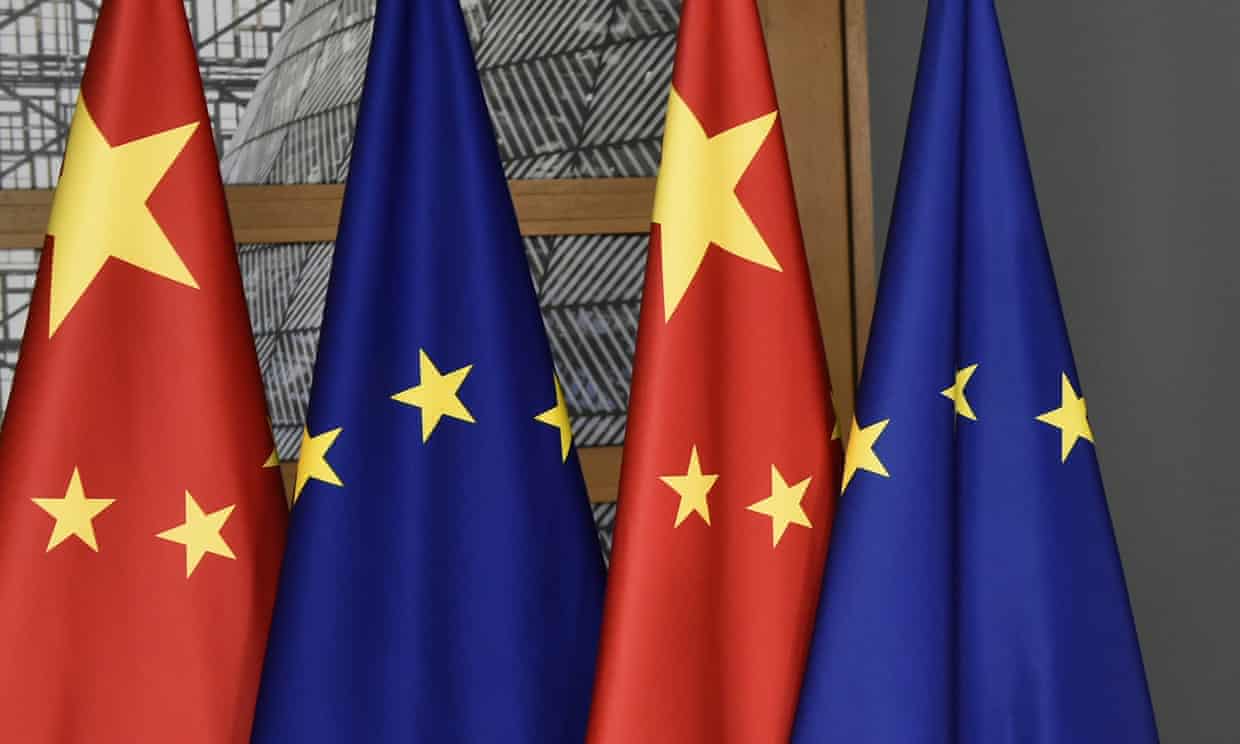
Trump’s ‘America first’ policy offers Beijing and Brussels a chance to lead
Donald Trump’s “America first” policies are widely regarded as an abdication of global leadership, sounding the death knell of the post-second world war multilateral order that the US shaped and sustained.
There is much truth to this view. At the same time, this troubling turn represents a reversion to longstanding US values. Acknowledging that the second half of the 20th century was an anomaly, rather than the norm, raises troubling questions about the nature of US leadership and the fate of multilateralism after Trump.
As a resource-rich continental economy separated from Europe and Asia by vast Atlantic and Pacific Oceans, the US has always been tempted by isolationism. Thomas Jefferson famously spoke of no entangling alliances. The Monroe doctrine, from 1823, was not just an assertion of US dominance in the western hemisphere but also an effort to keep the US out of European wars.
In the 20th century, the US entered the world wars several years late, long after the stakes were clear, and only after being directly provoked by German U-boat attacks and the Japanese raid on Pearl Harbor.
Moreover, the US long sought to advance its interests abroad unilaterally rather than through multilateral engagement. The Monroe doctrine is a case in point. The US’s refusal after the first world war to join the League of Nations is another.
Equally important, domestic business has long held inordinate sway over US economic and foreign policies. This historical pattern reflects the fact that it was the first country of continental scope to industrialise. Its immense internal market supported the efforts of US entrepreneurs to pioneer the large multidivisional corporation in the second half of the 19th century.
This was the age of the robber barons, who held sway over not just the US economy but also its politics. For example, the “big four” California railway tycoons (Leland Stanford, Collis Huntington, Mark Hopkins, and Charles Crocker) controlled not just freight rates but also the state legislature. Viewed from this perspective, the Trump administration’s willingness to cater to domestic corporations’ every regulatory whim is firmly in step with US history.
Americans’ deep, abiding and historically rooted distrust of government also reinforces isolationism. The view that government only creates problems is not just a product of Fox News. The US’s founders were profoundly suspicious of overweening government, from which they suffered under British colonialism.
After independence from Britain, the fact and then the legacy of slavery created deep-seated opposition to federal interference with local social arrangements and states’ rights. Rallies of gun-rights advocates at state capitols and the occupation of federal land by western ranchers are peculiarly American aberrations, but they are also modern-day manifestations of the long-held view that government cannot be trusted and that the best government is one that governs least. Trump and his policies stand squarely in this tradition.
The existential threat of the second world war was enough to shock the US out of its isolationist, anti-government tendencies, at least temporarily. Possessing the single strongest economy, along with politicians, including presidents, with personal experience of war, the postwar US was able to provide the leadership needed to construct an open, multilateral order.
But it was naive to think that this was “the end of history” – that the US would continue to exercise this kind of international leadership indefinitely. In the event, growing economic insecurity, together with the rise of identity politics (reflecting the inability of the once-dominant white majority to adjust to the reality of greater socioeconomic diversity), was enough to cause the American body politic to revert to its unilateral, isolationist mindset.
The next US president – whoever she or he may be – is unlikely to be as committed to free trade, alliance building, and multilateral institutions and rules as the presidents of the second half of the 20th century. But it is still possible to imagine multilateralism without the US. Climate change illustrates the point: Trump’s withdrawal from the 2015 Paris climate agreement has not weakened the commitment of other countries to its targets, nor should it.
Another example is how the European Union, China and 15 other countries reacted to Trump’s efforts to paralyse the World Trade Organisation by leaving its appellate body inquorate with too few judges. In response, they set up their own ad hoc, shadow appellate body to maintain WTO standards and procedures.
As this last case demonstrates, the successor to US global leadership must be collective global leadership, with the two largest economies, the EU and China, at its fore. Unlike the US, the EU is making every effort to work with China. Given the inevitable geopolitical tensions, cooperation won’t be easy. But, as the US once understood, it is the only way.